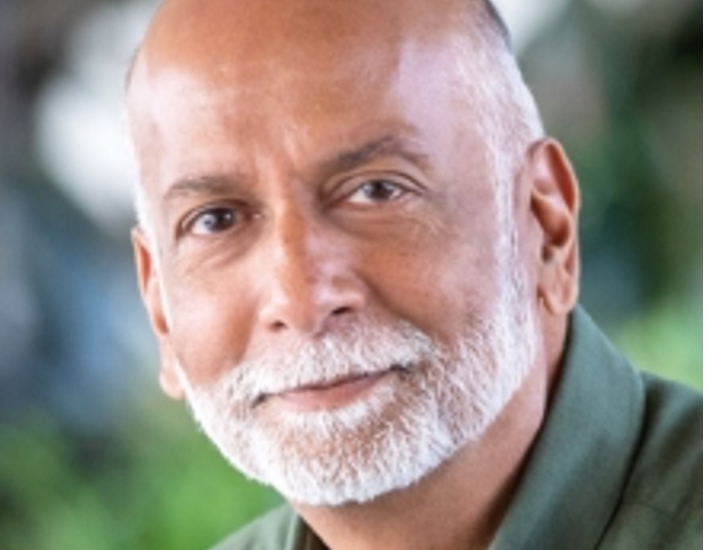Krishnamurti and Nondual Teachings, May 24 – 26, 2024
Krishnamurti and Modern Nondual Teachings
With Hillary Rodrigues
May 24 – 26, 2024
Zoom online
A long-time contributor and friend of the Krishnamurti Centre, Hillary, formerly a professor at the University of Lethbridge, was welcomed back to the Krishnamurti Educational Centre to present a three day online workshop exploring the teachings of J. Krishnamurti in contrast to modern and ancient nondual teachings which have been attracting a great deal of interest in recent years. Twelve people were in attendance for the event. Hillary began with the essential issue he wanted to consider with us: the possibility of having a transformative realisation that is more real and experiential than mere knowledge, which has its own place. Over the three sessions of 1 ½ hours he went into some of the history of nondual teachings such as Advaita Vedanta and the Upanishads in the Hindu tradition, including the teachings of Shankara, Buddhist teachings such as Zen, modern offshoots such as Ramana Maharshi, and current teachers such as Rupert Spira, Adyashanti, Mooji, Eckhart Tolle, Joan Tollifson, and Francis Lucille. Hillary emphasised that he was not so much making a comparison between the different teachers but was, rather, presenting triggers which might stimulate our own “seeking” or inquiry. He then led an investigation of Krishnamurti’s teachings along similar lines and where there were at least apparent differences and emphases. He made use of the short summary called “the core of the teachings” which K himself shared with Mary Zimbalist when requested by her.
In examining the various teachings, Hillary asked four questions concerning each approach which might reveal interesting perspectives:
1) What is the problem?
2) What is the goal?
3) What are the methods employed?
4) What are the obstacles?
For example, when addressing “the problem”, Rupert Spira seems to have considered that the main problem is that, given our essential nature is happiness, why is it not experienced all the time? Eckhart Tolle maintains that most of us have a superficial understanding of who we really are and Joan Tollifson says that the idea that we are an
encapsulated unit is the basis of our suffering. For Adyashanti, we have deceived ourselves such that we do not experience our divinity. Krishnamurti starts not with our divine nature but rather with our conditioned self which is not experiencing freedom or the unchanging awareness that Mooji suggests is our true nature. For K, we must see that there is actually no division between the observer and the observed, the thinker and the thought. The division is an illusion. Pure observation brings an insight which in turn brings about a radical mutation in the mind.
Along the way we touched on various questions of identity, knowledge, and awareness, as well as some of the paradoxes that arise as the mind attempts to understand something which essentially cannot be grasped through thought.
When it came to looking at Krishnamurti’s expression of self inquiry, we spent some time exploring his approach to being with pain and suffering. K gives great emphasis on not moving away from our suffering and not creating a duality between the observer and the observed or the “me” and the “other”. It is our movement away from “what is” that is the problem in that it creates a duality which results in conflict. When we stay with “what is”, it changes. This change leaves no residue and there is a transformation. These ideas were explored, sometimes very seriously and sometimes with a sense of humour and lightness which did not detract from the depth of the inquiry and the resulting sense of freedom and uncaused joy felt by some. Krishnamurti’s emphasis on nature was rare and his communication with scientists like David Bohm was unusual for his time. His message was global.
Hillary’s integration of academic skillfulness and logic, along with his depth of direct realisation of that which he speaks, created a space where it was possible to touch at least a somewhat different dimension of consciousness. We are grateful for his ongoing participation in the life of the Krishnamurti Educational Centre of Canada. He will be available at the Centre in the months to come.
DB


